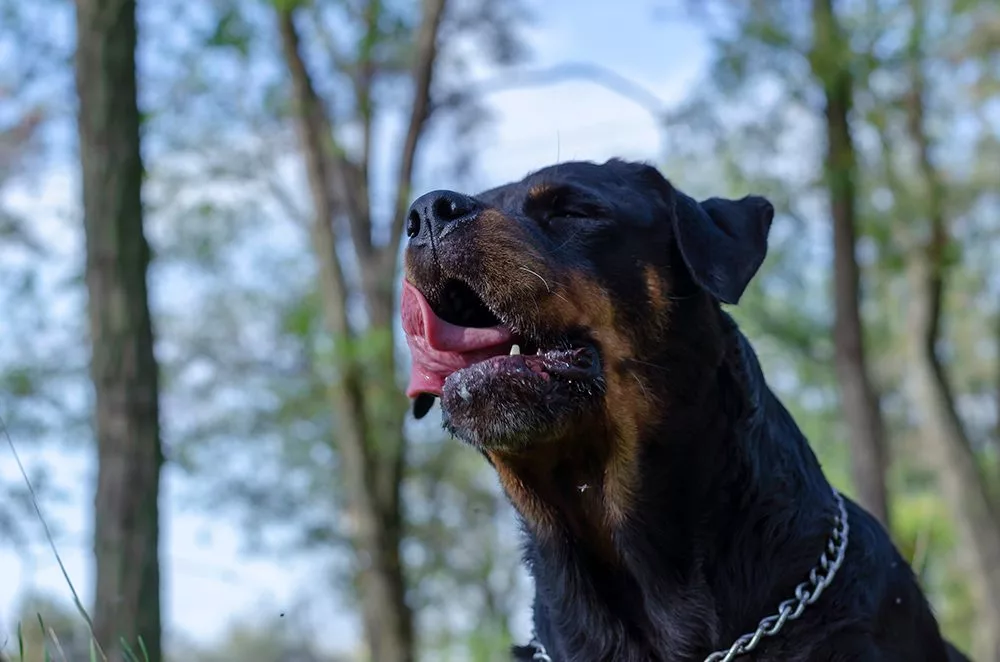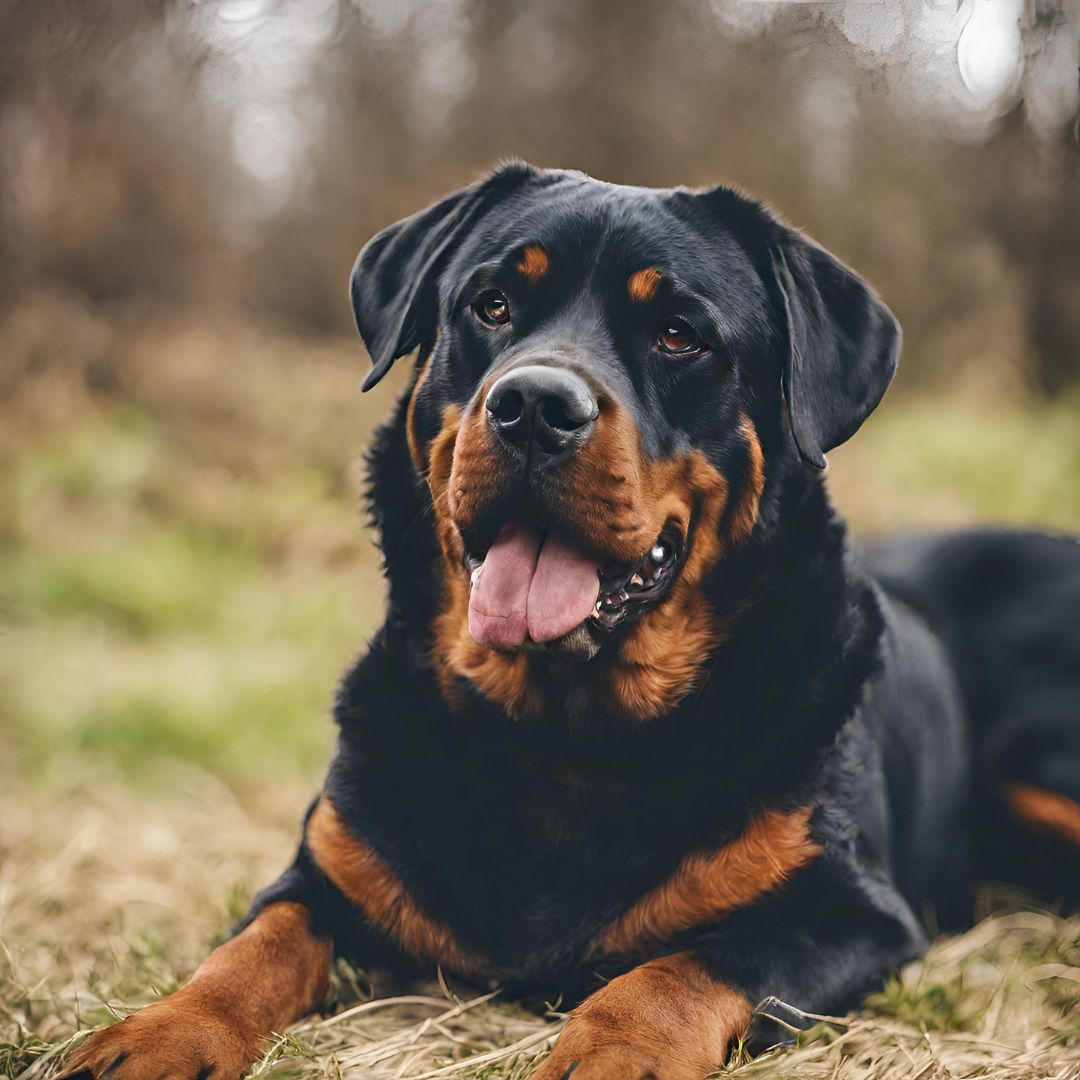Kennel Cough in Rottweilers, with its characteristic dry, hacking cough, can alarm the most attentive owner. But what does kennel cough mean for Rottweilers and the dedicated humans who care for them?
Table of Contents
Understanding Kennel Cough in Rottweilers
Kennel cough, or dog infectious tracheobronchitis, is as pesky as it’s miles not unusual. While the term “kennel” often coaxes worries approximately unsanitary situations at boarding facilities, it’s a misnomer. The truth is, just like the commonplace bloodless in humans, puppies can capture kennel cough everywhere other dogs have been: the park, grooming salons, and even at domestic.
For Rottweilers with their deep chests, a coughing match may be alarming. The sound, not assorted to a goose’s honk, can mistakenly lead owners to agree that there’s an obstruction or extra critical condition at play. Yet, in most cases, with time and proper care, Rottweilers can bounce back from this contamination without lingering results.
Symptoms in Rottweilers
Kennel cough in Rottweilers may exhibit one or more of the following symptoms:
- A harsh, dry, hacking cough, often triggered by exertion or excitement
- Coughing that is sometimes followed by gagging or retching as if to clear their throat
- Nose discharge, which can be clear and runny like a cold, or thicker, indicating a secondary infection
- Lethargy or decreased appetite
Symptoms can last for several days or weeks, and due to their strong constitutions, Rottweilers may act entirely healthy aside from the cough.

Treatment Options for Rottweilers with Kennel Cough
The first step is always to visit the vet, and this is no different for kennel cough in Rottweilers. Although the infection is usually mild and self-limiting, a vet visit will help to rule out more severe illnesses and, if necessary, provide treatment options.
Medication
In traditional instances, cough suppressants or antibiotics (if a bacterial infection is present) can be prescribed with the aid of the vet. Cough suppressants provide relief to the dog and ease symptoms for each pet and the proprietor. Antibiotics, however, are frequently debated due to the commonplace viral motive of kennel cough, however, they play a treasured position in preventing secondary bacterial infections.
Rest and Care
Much like a cold, kennel cough calls for rest. Running or playing intensely can exacerbate symptoms, so it’s time for quiet activities and lots of tender, loving care. Plenty of fresh water is essential to keep your Rottweiler hydrated and to soothe their throat.
Prevention Measures for Kennel Cough in Rottweilers
Prevention is always better than cure. Luckily, there are several steps Rottweiler owners can take to reduce the likelihood of their furry friends catching kennel cough.
Vaccination
The Bordetella bronchi-septic vaccine is the primary defense mechanism against kennel cough. Many kennels and dog daycares insist on this vaccination, but it’s also beneficial for everyday life. It’s administered via the nose as a spray or by injection and can be given as early as six weeks old, with a booster administered yearly or biannually, depending on the vaccine type.
Hygiene Practices
Just as we’re encouraged to wash our hands to prevent the unfold of the bloodless or flu, bathing and grooming practices for puppies can have a comparable impact. Regular grooming and baths help to keep your Rottweiler easy and decrease the bacteria and viruses that can be found in their coat. Additionally, washing their food and water bowls and often cleansing their residing regions can limit their exposure to infectious dealers.
Environmental Control
It’s important to have good air circulation where your Rottweiler spends time. Humid, stagnant air can harbor germs that could lead to kennel cough. Monitoring the quality of air your dog breathes is, therefore, an important step in prevention.
Personal Experience or Anecdotes With Kennel Cough in Rottweilers
I recall the saga of my own Rottweiler, who developed a kennel cough after a trip to the dog park. His deep-chested cough startled us, and we immediately took him to our vet. It was a relief to learn that, with tender care and the prescribed medication, his recovery was quick. It was a timely reminder that even the most robust of breeds can fall prey to such common illnesses.
Challenging Misconceptions About Kennel Cough in Rottweilers
One of the common misconceptions approximately kennel cough in Rottweilers is its prevention through isolation. Yes, isolating a dog with kennel cough can protect others from turning inflamed, however, it does not work in reverse. By the time a canine suggests signs and symptoms, they have probably already unfolded the virus to other dogs, as a consequence, it is a shared obligation inside the canine community to practice the right vaccination and hygiene.
Conclusion
Kennel cough in Rottweilers can be a worrisome experience, but with proper treatment and preventative measures, it is a workable situation. Ensuring your Rottweiler’s surroundings are smooth, they may be vaccinated, and their popular hygiene is maintained, can extensively lessen the probability of contracting kennel cough. It depends on being vigilant and proactive as accountable pet owners, as opposed to panicking while the goose-like honks start echoing via your own home. After all, a healthy Rottweiler embodies the whole lot we love approximately our pets – their dependable and indomitable spirit.
And Are you worried about Rottweiler bites? Rottweiler Bites: What You Need To Know This article explores the causes of Rottweiler bites and offers practical tips for prevention.
FAQs About Kennel Cough in Rottweilers:
- What is Kennel Cough in Rottweilers? Kennel Cough, moreover known as dog infectious tracheobronchitis, is a pretty contagious respiration sickness in puppies. Rottweilers can settle this disease after they inhale microorganisms or virus particles into their respiratory tract.
- What are the signs and symptoms and signs of Kennel Cough in Rottweilers? Symptoms of Kennel Cough in Rottweilers include a robust cough regularly with a “honking” sound, runny nostrils, sneezing, lethargy, loss of urge for meals, and espresso fever.
- How is Kennel Cough in Rottweilers handled? Treatment for Kennel Cough generally includes coping with the signs and signs while the canine’s immune machine fights off the disorder. Veterinarians might also prescribe cough suppressants, antibiotics, or anti-inflammatory medicinal drugs.
- Can Kennel Cough in Rottweilers be prevented? Yes, there are vaccines to be had for some of the shops that purpose Kennel Cough. However, due to the various one-of-a-kind lines of microorganisms and viruses that can cause the disease, vaccination does not guarantee complete immunity.
- How long does Kennel Cough near in Rottweilers? Most instances of Kennel Cough are solved within 3 weeks, however, it could linger for up to six weeks or longer in some dogs, specifically dogs, older dogs, or dogs with different health conditions.

